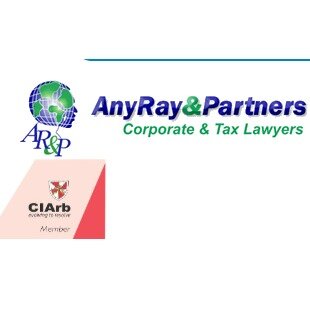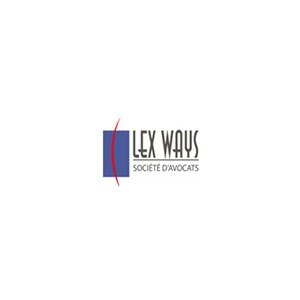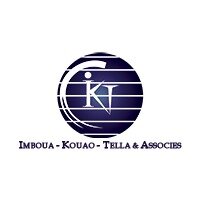Best Renewable & Alternative Energy Lawyers in Ivory Coast
Share your needs with us, get contacted by law firms.
Free. Takes 2 min.
Or refine your search by selecting a city:
List of the best lawyers in Ivory Coast
About Renewable & Alternative Energy Law in Ivory Coast
Ivory Coast, also known as Côte d’Ivoire, has emerged as a regional leader in the transition to sustainable energy. As the country continues to develop, both the government and private sector have recognized the importance of renewable and alternative energy sources such as solar, wind, biomass, and hydroelectric power. The government’s energy policy focuses on increasing the share of renewables in the national energy mix, ensuring energy security, and meeting international climate obligations. Laws and regulations governing this sector are evolving rapidly to promote investment, regulate project development, and protect both the environment and energy consumers.
Why You May Need a Lawyer
Navigating the legal landscape of renewable and alternative energy projects in Ivory Coast can be complex. Individuals, investors, companies, and even communities may encounter situations where legal assistance becomes crucial. Common scenarios include:
- Understanding and complying with local regulatory requirements for project development, such as permits and licenses
- Drafting and negotiating contracts, power purchase agreements (PPAs), and partnerships
- Securing land rights and resolving land-use disputes
- Obtaining environmental and social impact assessments and approvals
- Protecting intellectual property, such as new technologies or inventions
- Managing risk and liability during construction and operation
- Navigating government incentive programs and accessing tax benefits
- Dispute resolution with government agencies or business partners
- Ensuring compliance with national and international standards and obligations
A qualified lawyer can guide you through these processes, help avoid costly mistakes, and improve your chances of a successful project.
Local Laws Overview
Ivory Coast has passed several laws and regulations to encourage renewable and alternative energy investments while ensuring environmental protection. Key aspects include:
- Renewable Energy Policy: The national policy aims to increase renewable energy production, with targets set for solar, hydropower, biomass, and wind energy.
- Investment Code: Provides incentives for investors in the energy sector, including tax breaks and customs exemptions.
- Electricity Code (Loi n°2014-132): Defines the framework for electricity production, distribution, and sale, and allows private participation in the sector.
- Environmental Code: Requires environmental impact studies for energy projects and establishes penalties for non-compliance.
- Licensing and Permitting: Developers must obtain licenses from bodies such as the Ministry of Petroleum, Energy and Renewable Energies and comply with technical standards and safety requirements.
- Rural Electrification Programs: Special legal provisions apply to off-grid and community projects aimed at expanding energy access.
Staying up to date with local laws and regulatory changes is critical to legally operating in this sector.
Frequently Asked Questions
What types of renewable energy sources are currently promoted in Ivory Coast?
Ivory Coast actively promotes solar, hydroelectric, biomass, and wind energy through various government programs and incentives.
Do I need a license to build a renewable energy project?
Yes, all forms of renewable energy projects require permits and licenses from relevant government authorities, depending on the project size and type.
Are there investment incentives for renewable energy projects?
Yes, the Investment Code and other government initiatives offer tax breaks, customs exemptions, and other incentives for approved renewable energy investments.
What government agencies are involved in regulating renewable energy?
The Ministry of Petroleum, Energy and Renewable Energies is the primary regulatory authority, along with agencies responsible for environmental protection and rural electrification.
What are the main steps for launching a renewable energy project?
Main steps include project feasibility study, securing land rights, conducting environmental and social assessments, obtaining permits, arranging financing, and construction.
Are there environmental regulations affecting renewable energy projects?
Yes, all projects must comply with national environmental laws and are subject to impact assessments to minimize negative effects.
Can foreign companies invest in Ivory Coast’s renewable energy sector?
Yes, the sector is open to foreign investors, subject to compliance with local laws and obtaining the required permits.
How are power purchase agreements structured?
PPAs in Ivory Coast are typically negotiated with the state utility or other buyers, and outline pricing, delivery, and other key terms subject to regulatory approval.
What legal risks should I be aware of?
Legal risks include regulatory changes, land disputes, compliance with technical and environmental standards, and contract enforcement issues.
Where can I get help if a legal dispute arises?
Disputes can be resolved through negotiation, mediation, or through the national courts. Specialized lawyers can provide representation and advice throughout the process.
Additional Resources
To learn more about renewable and alternative energy law in Ivory Coast or to seek assistance, consider the following resources:
- Ministry of Petroleum, Energy and Renewable Energies
- Autorité nationale de régulation du secteur de l’électricité de Côte d’Ivoire (ANARE-CI)
- Agence nationale de l’environnement (ANDE)
- Agence nationale d’appui au développement rural (ANADER)
- Chamber of Commerce and Industry of Côte d’Ivoire
- Local legal associations and law firms with experience in energy law
- International organizations such as the African Development Bank and the World Bank, which work on renewable energy projects in Ivory Coast
Next Steps
If you need legal assistance related to renewable and alternative energy in Ivory Coast, you should:
- Clearly define your project or legal issue
- Collect all relevant documents and information
- Identify and contact a lawyer with expertise in energy and environmental law in Ivory Coast
- Arrange a consultation to discuss your needs, obligations, and legal options
- Follow your lawyer’s recommendations on compliance, permitting, contracts, and dispute resolution
- Stay informed about legislative changes and industry updates that may affect your rights or obligations
Engaging a knowledgeable legal professional early in your process can help ensure your renewable or alternative energy project complies with local laws and achieves lasting success.
Lawzana helps you find the best lawyers and law firms in Ivory Coast through a curated and pre-screened list of qualified legal professionals. Our platform offers rankings and detailed profiles of attorneys and law firms, allowing you to compare based on practice areas, including Renewable & Alternative Energy, experience, and client feedback.
Each profile includes a description of the firm's areas of practice, client reviews, team members and partners, year of establishment, spoken languages, office locations, contact information, social media presence, and any published articles or resources. Most firms on our platform speak English and are experienced in both local and international legal matters.
Get a quote from top-rated law firms in Ivory Coast — quickly, securely, and without unnecessary hassle.
Disclaimer:
The information provided on this page is for general informational purposes only and does not constitute legal advice. While we strive to ensure the accuracy and relevance of the content, legal information may change over time, and interpretations of the law can vary. You should always consult with a qualified legal professional for advice specific to your situation.
We disclaim all liability for actions taken or not taken based on the content of this page. If you believe any information is incorrect or outdated, please contact us, and we will review and update it where appropriate.
Browse renewable & alternative energy law firms by city in Ivory Coast
Refine your search by selecting a city.












